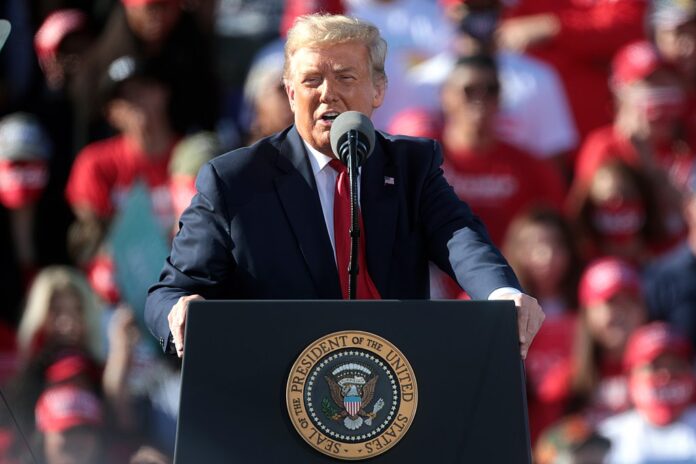In a candid NBC interview, Trump discusses his tariff policies, potential legal actions, and broader issues ahead of his potential return to the White House
In a wide-ranging interview with NBC’s Meet the Press, Donald Trump acknowledged the possibility that his proposed tariffs on key foreign trade partners might raise prices for American consumers, a shift from his usual stance that such measures would benefit U.S. households by curbing inflation.
When asked about the potential impact of tariffs on prices, Trump admitted, “I can’t guarantee anything. I can’t guarantee tomorrow,” suggesting that while he believed tariffs would help boost U.S. manufacturing, he could not rule out the reality that they could increase costs for American families. This marks a departure from his previous assertions during the 2024 campaign, where he claimed his trade policies would reduce inflation.
Trump’s stance on tariffs has been consistent in one regard: his determination to impose them as a means of strengthening the U.S. economy. In the interview, he framed the idea of tariffs as a way to make America “rich.” He has repeatedly stated that on his first day in office, he would impose a 25% tariff on all goods imported from Mexico and Canada unless those nations meet his demands to halt illegal immigration and the trafficking of drugs like fentanyl into the U.S. He also hinted at further levies on China to pressure the country into taking stronger actions against fentanyl production.
Embed from Getty ImagesDespite his plans, Trump conceded that the economic consequences of tariffs could be more complicated than he initially suggested. This has raised concerns among economists, many of whom warn that tariffs typically lead to higher prices for consumers and disrupt supply chains. However, Trump remained firm in his belief that these measures would ultimately benefit the U.S. in the long run, positioning them as necessary for a “fair playing field.”
Beyond economic matters, Trump also discussed potential legal actions, particularly towards those who have pursued cases against him. He raised the spectre of “revenge prosecutions,” suggesting that some of his political opponents and federal officials who have been involved in legal cases against him should face imprisonment. This provocative statement is in line with previous remarks where Trump has suggested that political rivals should be held accountable for what he views as politically motivated legal challenges.
Throughout the interview, Trump offered a mix of bold statements and caveats, often asserting that the situation could change. He touched on several other critical issues, including U.S. foreign policy, immigration, and health care. Trump reiterated his positions on immigration, pledging to take a hard stance against illegal immigration while pushing for stricter border control measures. He also discussed U.S. involvement in international conflicts, including those in Ukraine and Israel, but provided no definitive answers on future foreign policy directions.
As the 2024 election season continues to unfold, Trump’s comments reflect his ongoing attempts to balance his hardline policies with the realities of governing. His mixed approach to tariffs and legal matters highlights the challenges he may face if he secures a second term in the White House.
